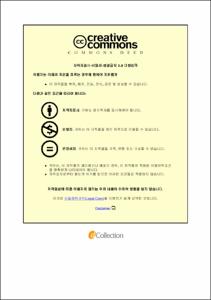검정 초등영어 교사용 지도서의 교사 언어 적절성 분석
- Abstract
- Investigating the Suitability of Teacher Talk in Teachers’ Guides
for Elementary School English Textbooks: Focus on Vocabulary
Kwon, Eun su
Graduate School of Education
Pukyong National University
Abstract
This study examined whether teacher talk in the approved teachers’ guides for elementary school English textbooks is appropriate for elementary school students, focusing on the lexical aspect of teacher talk. Specifically, the study addressed three research questions: Is the vocabulary level of teacher talk in the teachers’ guides appropriate for elementary school students? Does the vocabulary level of teacher talk gradually increase over the grades? Is the vocabulary of the teachers’ guides not in the word list of the national curriculum recycled adequately? To answer these questions, the researcher randomly selected 3 teachers’ guides for grades 3-6 and analyzed the words used in teacher talk for Play and Activity sections of each unit using two computer programs, Range and VocabProfile.
First, the study revealed that the number of different words used in the teachers’ guides ranged between 614 and 643, and that only 72% of these words were the ones recommended for use in elementary school. These figures suggest that the vocabulary level of teacher talk is not very suitable for elementary school students. Students are expected to learn about 500 words by the time they graduate from elementary school, and the national curriculum stipulates that over 80% of the words used in the textbooks come from the list of words recommended for elementary school.
Second, it was found that the vocabulary level of teacher talk did not show a systematic, gradual increase over the grades. Teacher talk at lower grades were expected to incorporate a larger proportion of words recommended for use in elementary school and gradually a lower proportion of those words. At the same time, the percentage of words in teacher talk that go beyond the list of words recommended for elementary school use was expected to gradually increase over the grades. However, such expectations were not met.
Finally, the study found that difficult words were not recycled sufficiently. Words from the list of words in the national curriculum recommended for secondary school use were repeated less than 2.5 times on the average. Even more disappointingly, words outside the list were recycled less than 1.32 times on the average. This strongly suggests that teacher talk is not very conducive to implicit vocabulary acquisition.
The results of this study suggest that materials developers pay more attention to the lexical level of teacher talk in teachers’ guides. They also suggest that teachers should not just imitate the teacher talk in the teachers’ guides if they are to make their classroom English comprehensible to their students.
- Issued Date
- 2015
- Awarded Date
- 2015. 8
- Type
- Dissertation
- Publisher
- 부경대학교 교육대학원
- Affiliation
- 부경대학교
- Department
- 교육대학원 영어교육전공
- Advisor
- 오준일
- Table Of Contents
- 목 차
Abstract······················································································ⅴ
Ⅰ. 서론 ·······················································································1
1.1 연구의 목적과 필요성·······························································1
1.2 연구 과제···············································································4
1.3 연구의 구성과 제한점·······························································5
Ⅱ. 이론적 배경············································································7
2.1 입력 가설 이론········································································7
2.2 교사 언어의 정의, 특징 및 역할·················································9
2.3 제2언어 학습에서의 어휘의 중요성·············································13
2.4 어휘 난이도와 교육과정에서의 어휘 통제···································15
2.5 선행 연구 ···········································································19
Ⅲ. 연구 방법 ···········································································23
3.1 분석 대상 및 범위 ································································23
3.2 분석 도구 ············································································26
3.3 자료 수집 및 분석 방법··························································34
Ⅳ. 연구 결과 및 논의 ························································38
4.1 교사 언어 어휘 수준의 적절성·················································38
4.2 어휘 난이도 비교 분석···························································42
4.3 어려운 어휘의 빈도수와 포함 범주··········································46
Ⅴ. 결론 및 제언·········································································53
5.1 결론·····················································································53
5.2 제언·····················································································55
참고문헌 ····················································································57
- Degree
- Master
- Files in This Item:
-
-
Download
 검정 초등영어 교사용 지도서의 교사 언어 적절성 분석.pdf
기타 데이터 / 2.58 MB / Adobe PDF
검정 초등영어 교사용 지도서의 교사 언어 적절성 분석.pdf
기타 데이터 / 2.58 MB / Adobe PDF
-
Items in Repository are protected by copyright, with all rights reserved, unless otherwise indicated.